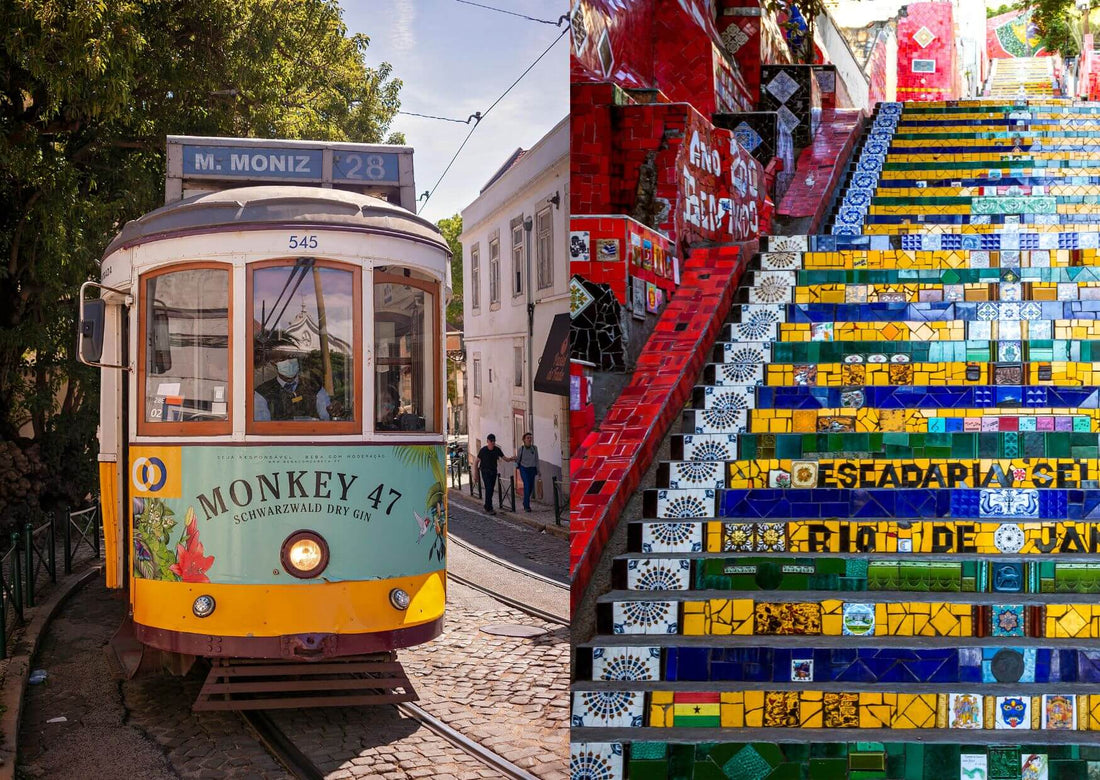
The differences between Portuguese in Portugal and Portuguese in Brazil
🌍What are the differences?
Portuguese is spoken by millions of people around the world, but did you know that Portuguese and Brazilian Portuguese have different characteristics? From sounds, words, and idioms, let's explore the main differences between these two versions of the same language.
Pronunciation and sounds: a world apart
European Portuguese tends to be more closed and fast-paced, with pronounced nasal sounds and often less pronounced vowels. Brazilian Portuguese, on the other hand, is more open, melodic, and musical, with a clearer and more cadenced pronunciation.
🗣️ Vocabulary and different words
- Bus: in Portugal it is called autocarro , in Brazil ônibus .
- Cellphone: telemóvel in Portugal, celular in Brazil.
- Breakfast: pequeno-almoço in Portugal, café da manhã in Brazil.
📚 Grammar and usage: small nuances
In Portugal, the simple past tense is often used to describe past events, while in Brazil, the compound past tense is more common. The construction of some sentences and the use of pronouns also vary slightly.
🎉 Culture and sayings
Each version of Portuguese reflects the culture it represents. European Portuguese can seem more formal, while Brazilian Portuguese is full of lively expressions, slang, and a more colloquial and warm tone.
💡 4 tips for those who want to learn
- Decide which variant interests you more: Portugal or Brazil? Or maybe both!
- Listen to music and watch movies: it will help you familiarize yourself with accents and rhythm.
- Practice pronunciation: each variant has unique sounds to learn.
- Don't be afraid to make mistakes: the language is alive and constantly evolving.
Learning Portuguese, in any variant, opens the doors to two wonderful cultures and a world rich in color, music and stories to tell.
Cassetto Culturale offers courses to learn the languages spoken in Portugal and Brazil, with native teachers and lots of practice.
